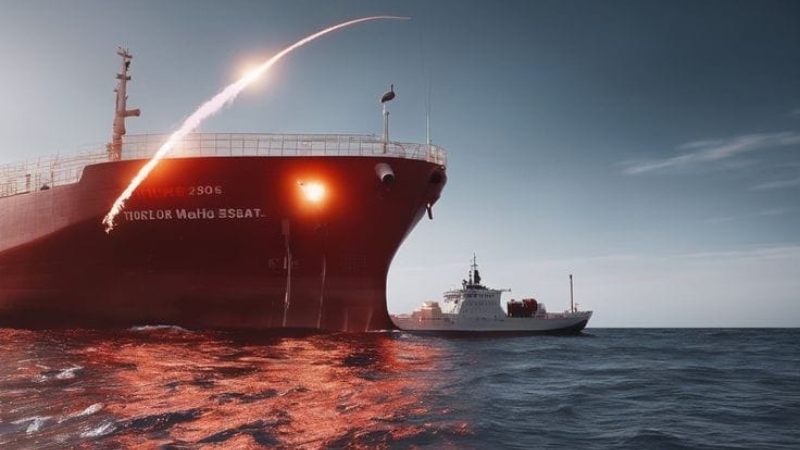
The Houthis are a group from Yemen primarily composed of Zaidi Shia Muslims
The group gained prominence after Hussein al-Houthi's 2004 revolt against the Yemeni government
Initially, it was a movement advocating for Zaidi Shia rights
The developing situation in the Red Sea is a clear example of how Tehran’s ambitions for dominance are meeting the West’s dedication to maintaining international order.
The outcomes of the current conflicts will impact not just the regional landscape but also the entire world. Tehran’s efforts to control the region are not just focused on the situation in Gaza, but are aimed at influencing the direction of global politics.
After the recent retaliatory actions by the US and UK, the continuous attacks by the Houthi on shipping in the Red Sea suggest that Iran is still not discouraged. It appears that Iran doubts the US will strongly or directly react to these provocations, which Iran is orchestrating through its allies and now even directly.
Although triggered by events in Israel and Gaza, this battle for power goes beyond these areas, influencing political dynamics both regional and global dynamics.
Who are Houthis?
The Houthis, a group from Yemen primarily composed of Zaidi Shia Muslims and named after their early leader, Hussein Badreddin al-Houthi, emerged in the 1990s. Initially a movement advocating for Zaidi Shia rights, they evolved into a politically and militarily active group. With support from Iran, they opposed Yemen’s government, criticizing its corruption and the influence of Western nations and Saudi Arabia.
The group gained prominence after Hussein al-Houthi’s 2004 revolt against the Yemeni government. After his death, his family members took over the leadership. In 2014, the Houthis seized Yemen’s capital, Sanaa, declaring themselves the government, which led to ongoing conflicts involving major regional and international powers, particularly Saudi Arabia and Iran. This strife has caused a significant humanitarian crisis in the area.
(The author of this article is a Defence, Aerospace & Political Analyst based in Bengaluru. He is also Director of ADD Engineering Components, India, Pvt. Ltd, a subsidiary of ADD Engineering GmbH, Germany. You can reach out to him at: [email protected])

The Houthis are a group from Yemen primarily composed of Zaidi Shia Muslims
The group gained prominence after Hussein al-Houthi's 2004 revolt against the Yemeni government
Initially, it was a movement advocating for Zaidi Shia rights
The developing situation in the Red Sea is a clear example of how Tehran’s ambitions for dominance are meeting the West’s dedication to maintaining international order.
The outcomes of the current conflicts will impact not just the regional landscape but also the entire world. Tehran’s efforts to control the region are not just focused on the situation in Gaza, but are aimed at influencing the direction of global politics.
After the recent retaliatory actions by the US and UK, the continuous attacks by the Houthi on shipping in the Red Sea suggest that Iran is still not discouraged. It appears that Iran doubts the US will strongly or directly react to these provocations, which Iran is orchestrating through its allies and now even directly.
Although triggered by events in Israel and Gaza, this battle for power goes beyond these areas, influencing political dynamics both regional and global dynamics.
Who are Houthis?
The Houthis, a group from Yemen primarily composed of Zaidi Shia Muslims and named after their early leader, Hussein Badreddin al-Houthi, emerged in the 1990s. Initially a movement advocating for Zaidi Shia rights, they evolved into a politically and militarily active group. With support from Iran, they opposed Yemen’s government, criticizing its corruption and the influence of Western nations and Saudi Arabia.
The group gained prominence after Hussein al-Houthi’s 2004 revolt against the Yemeni government. After his death, his family members took over the leadership. In 2014, the Houthis seized Yemen’s capital, Sanaa, declaring themselves the government, which led to ongoing conflicts involving major regional and international powers, particularly Saudi Arabia and Iran. This strife has caused a significant humanitarian crisis in the area.
(The author of this article is a Defence, Aerospace & Political Analyst based in Bengaluru. He is also Director of ADD Engineering Components, India, Pvt. Ltd, a subsidiary of ADD Engineering GmbH, Germany. You can reach out to him at: [email protected])
